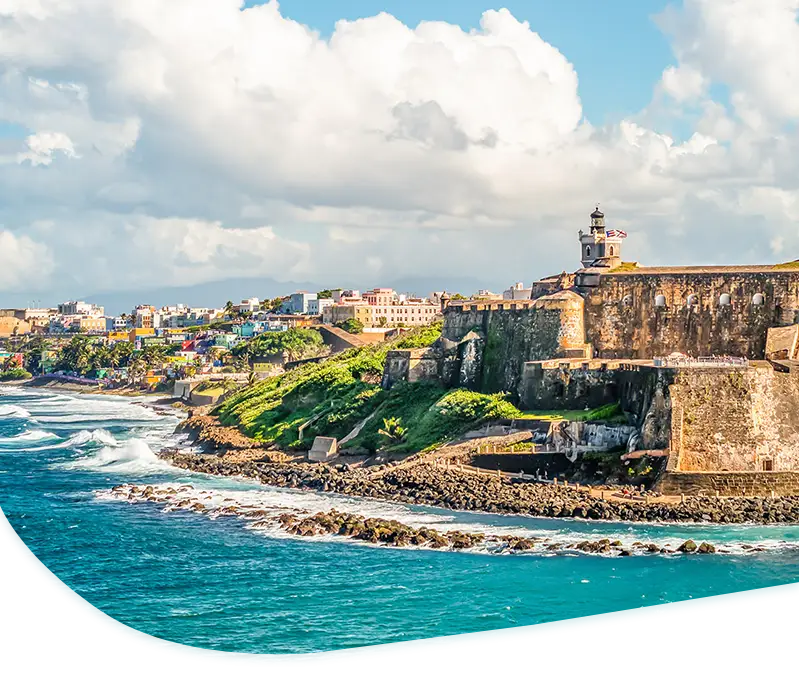Labor Laws in Puerto Rico
- Annual Leave: 6 - 15 days
- Maternity Leave: 8 weeks
- Public Holidays: 17
- Workweek: 40 hours per week.

Get everything you need to hire talent in Puerto Rico. Download our comprehensive guide for hiring in this expanding market.
Capital:
San Juan
Language:
Spanish
Currency:
United States Dollar
Please enter the following information:
Puerto Rico has progressive income tax rates from 0% to 33%.
The standard VAT rate in Puerto Rico is 10.5%.
Puerto Rico is covered under the US social security system; consequently, Puerto Rico employers and employees are subject to the US Social Security and Medicare tax requirements.
Social Security Tax (FICA-OASDI)
Medicare Tax
Disability Benefits Tax (SINOT)
Here are the main work visas available in Puerto Rico:
Puerto Rico is a U.S. territory, meaning that immigration laws and work visas follow the same guidelines as in the United States.
H-1B Visa
L-1 Visa
O-1 Visa
Setting up a company in Puerto Rico can be expensive and complex. Global Expansion simplifies your entry into this market.
We handle hiring, HR, and payroll while ensuring compliance with local regulations, all without establishing a local entity.
Our Puerto Rico Employer of Record (EOR) solution lets you focus on your business growth.